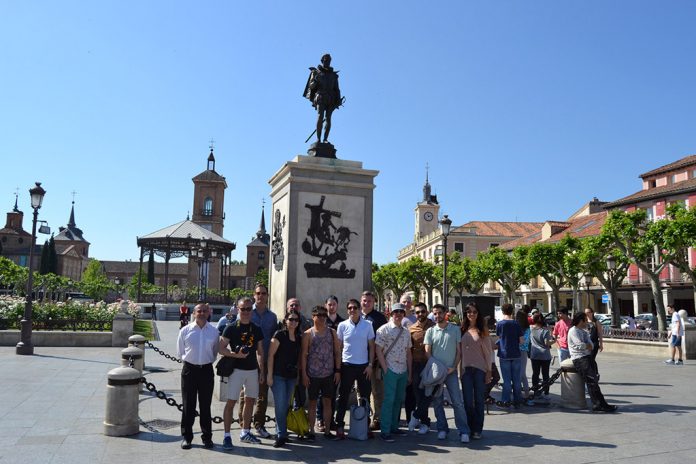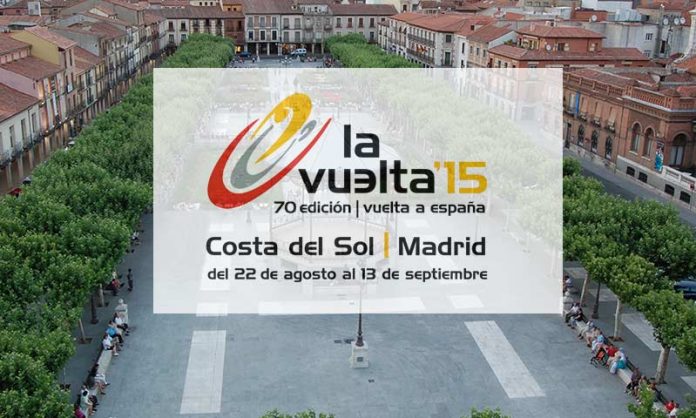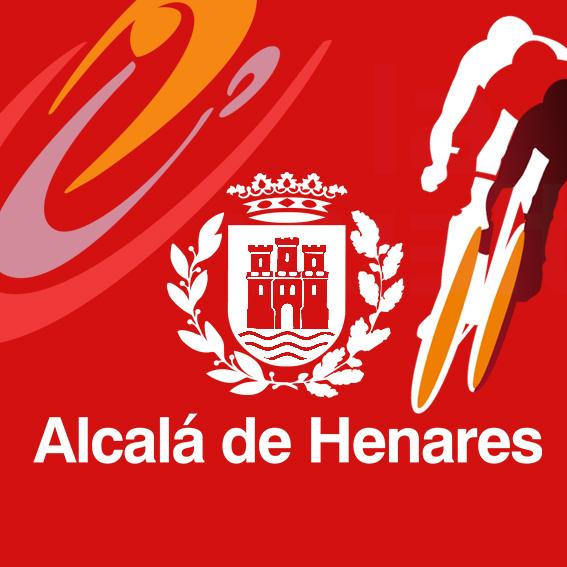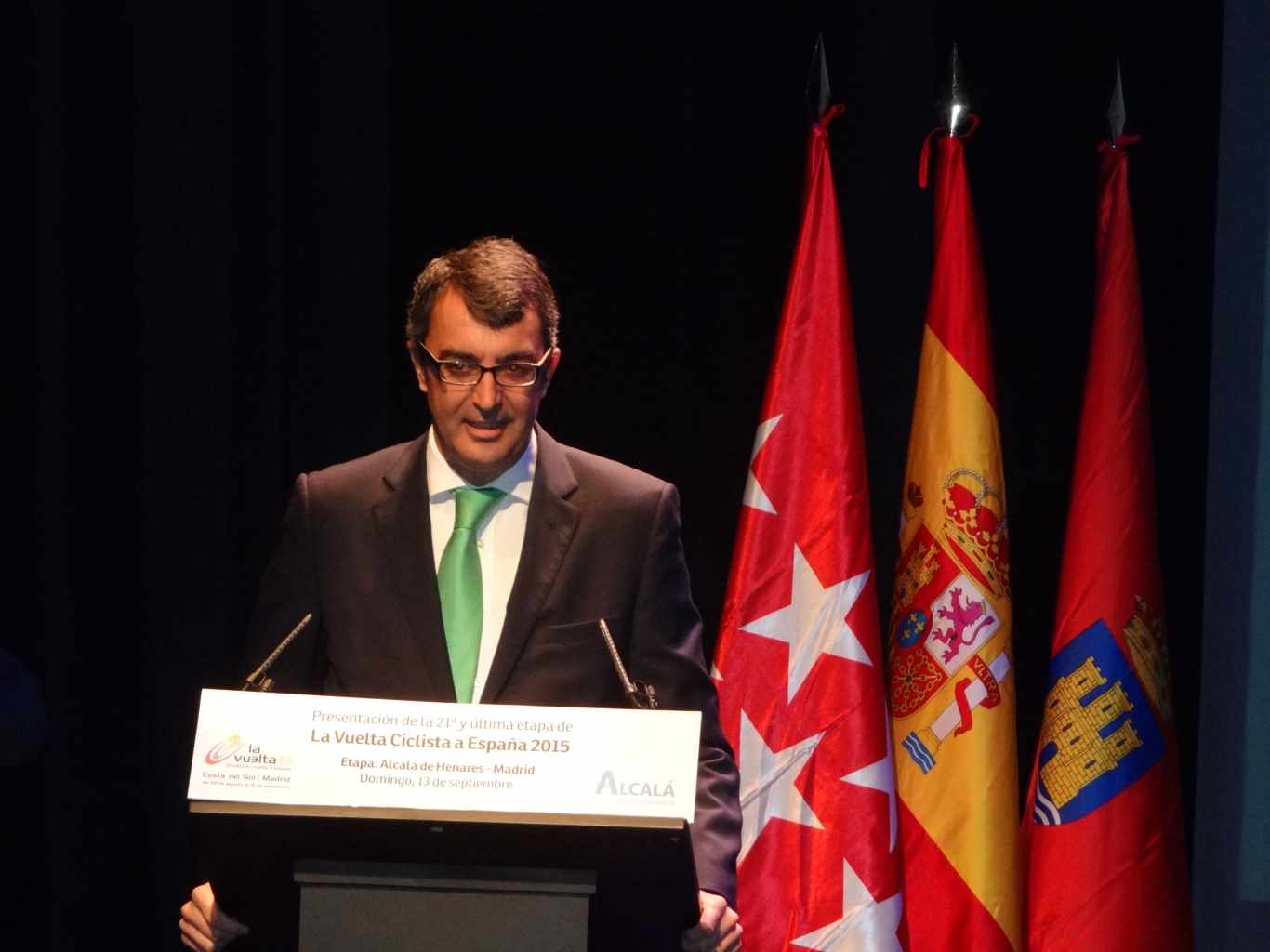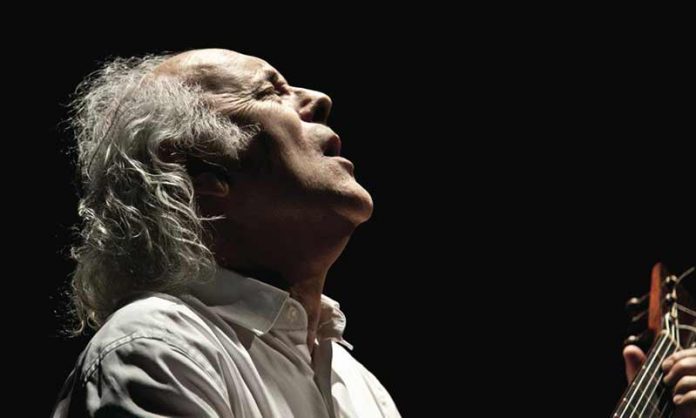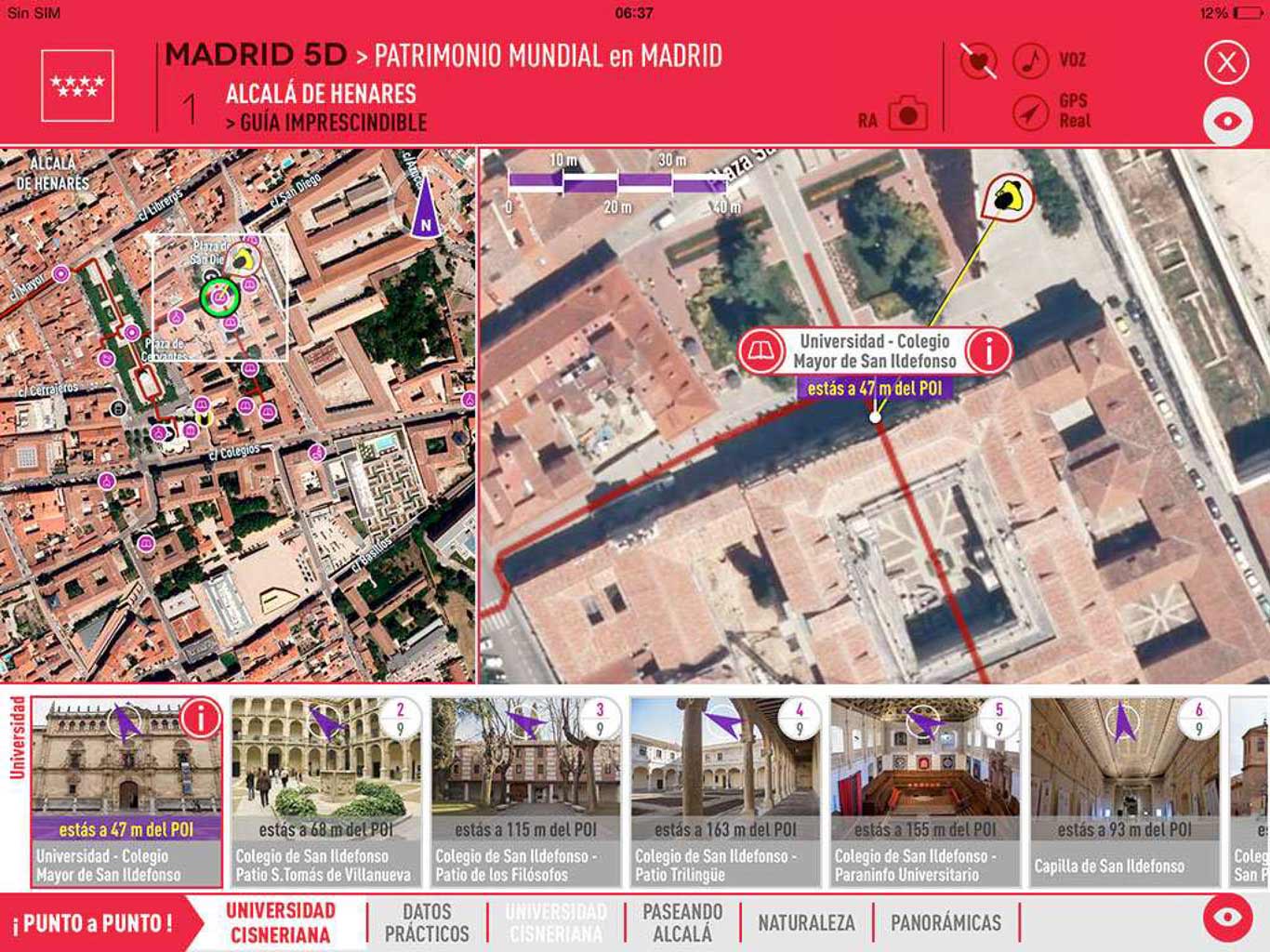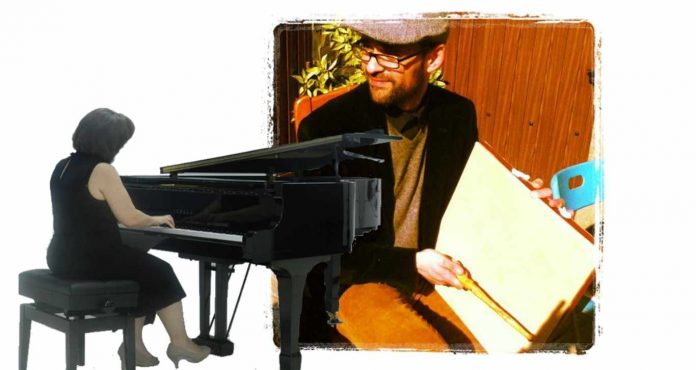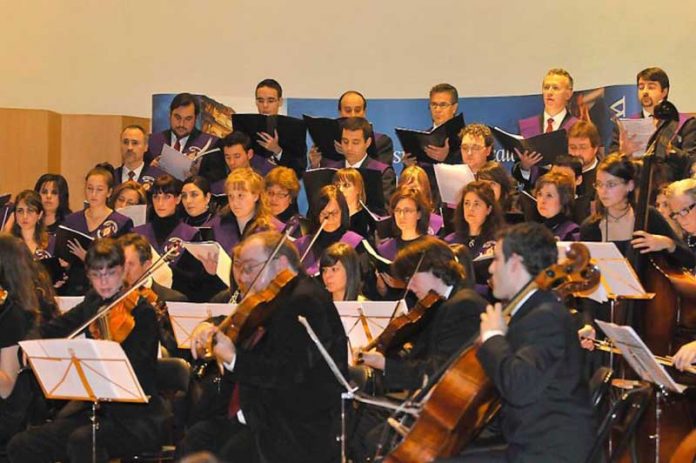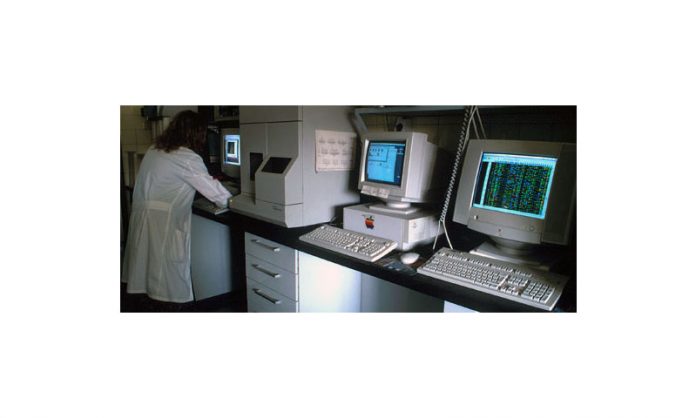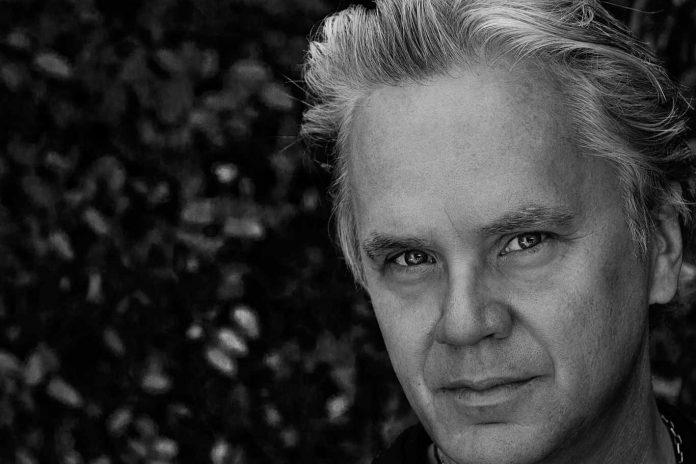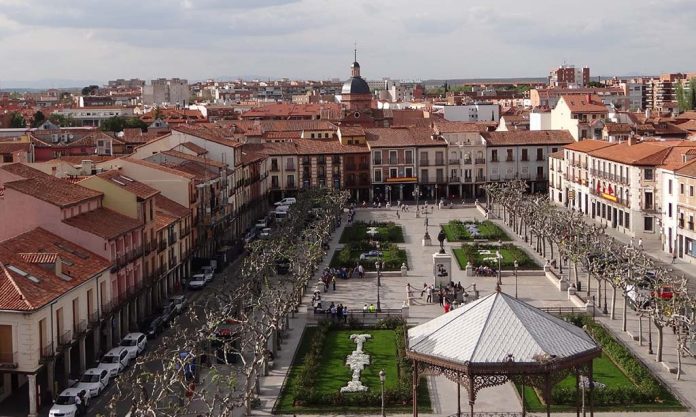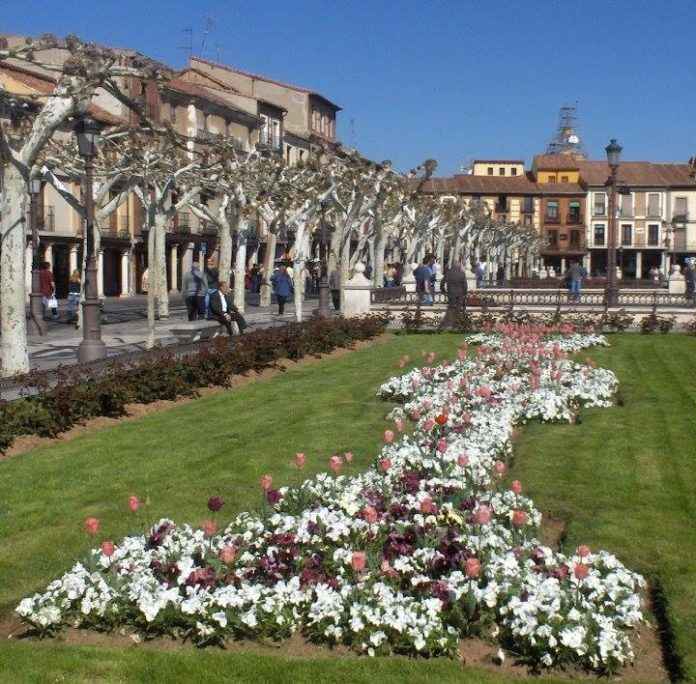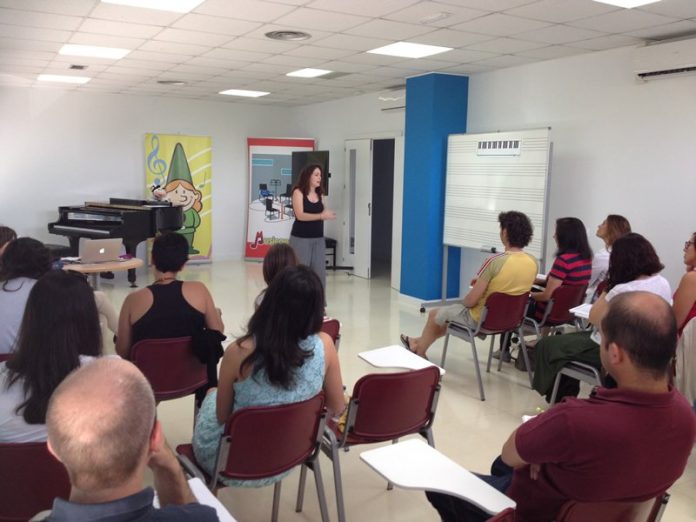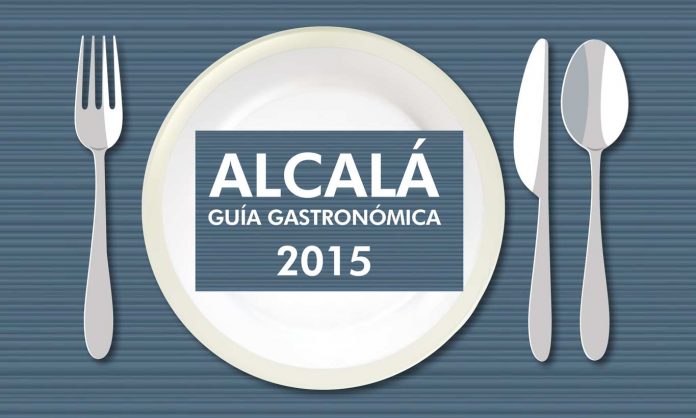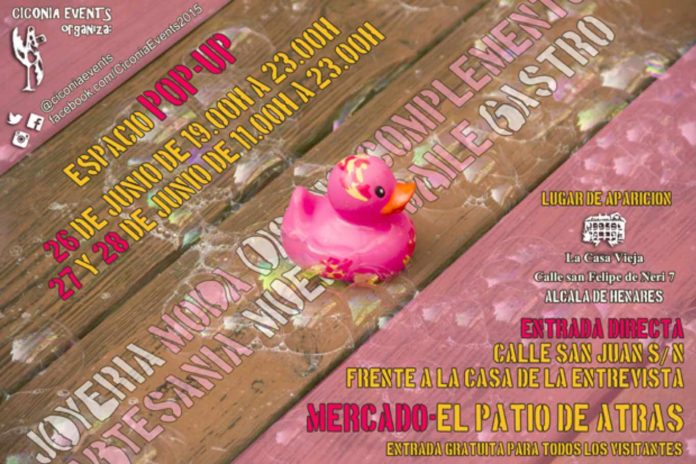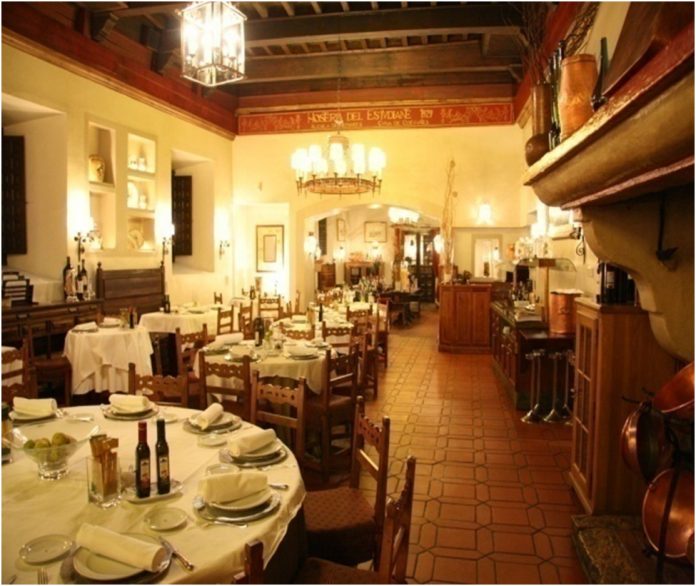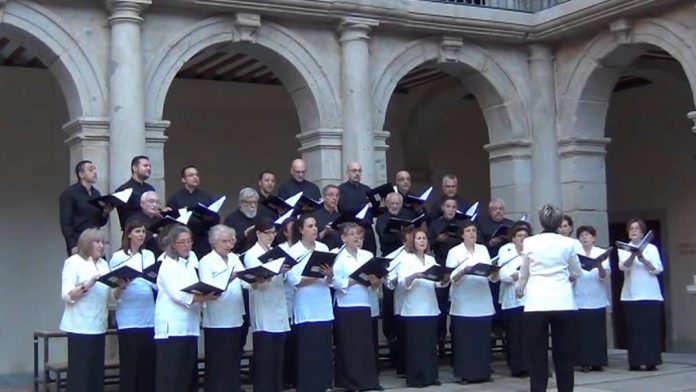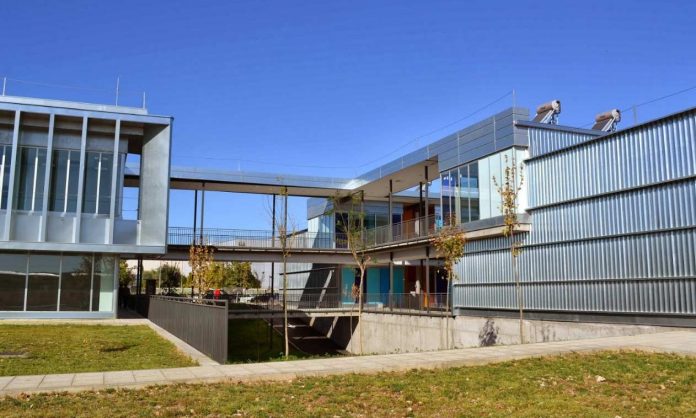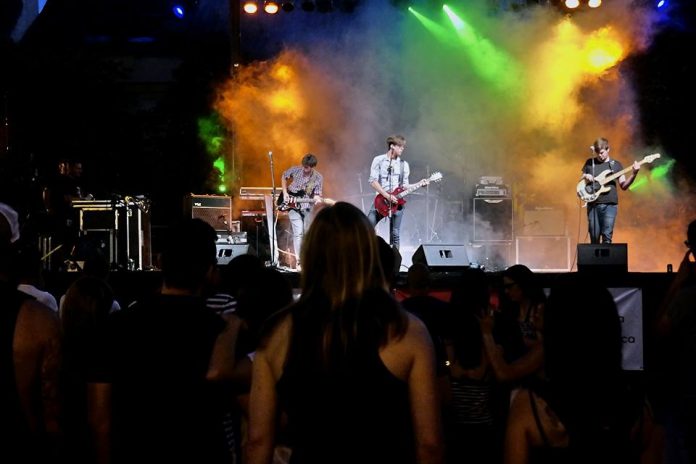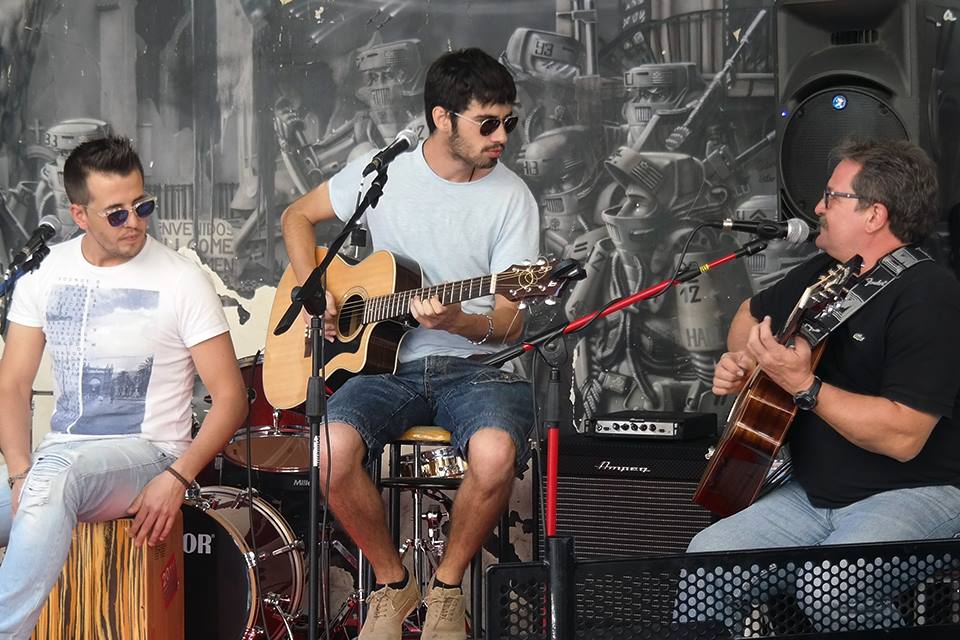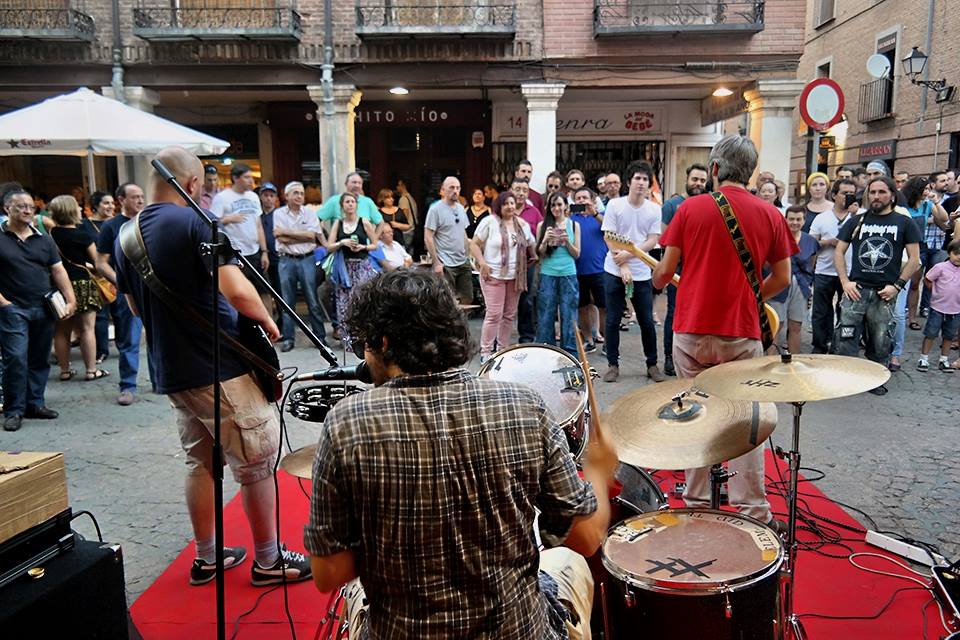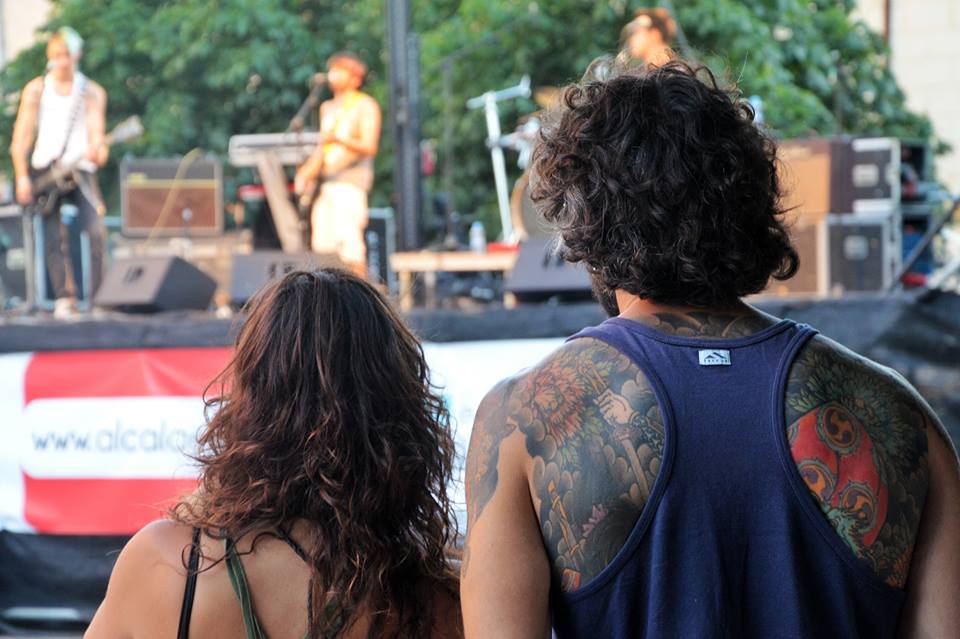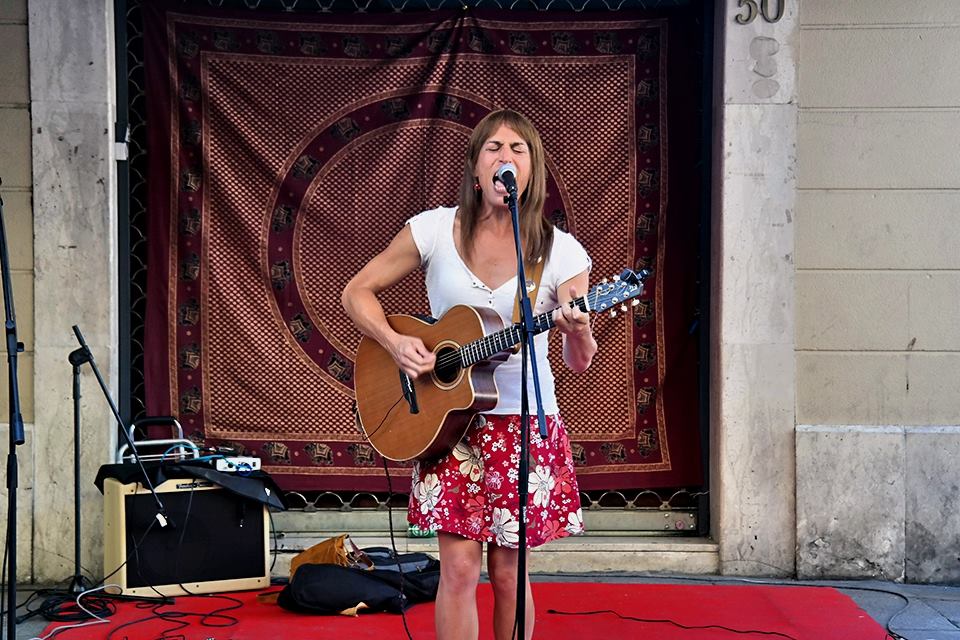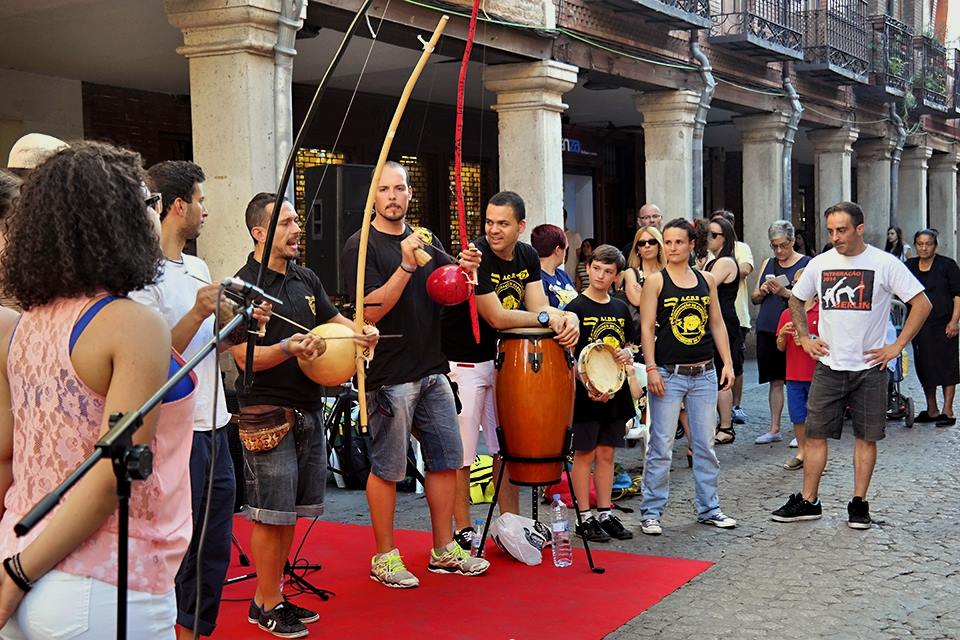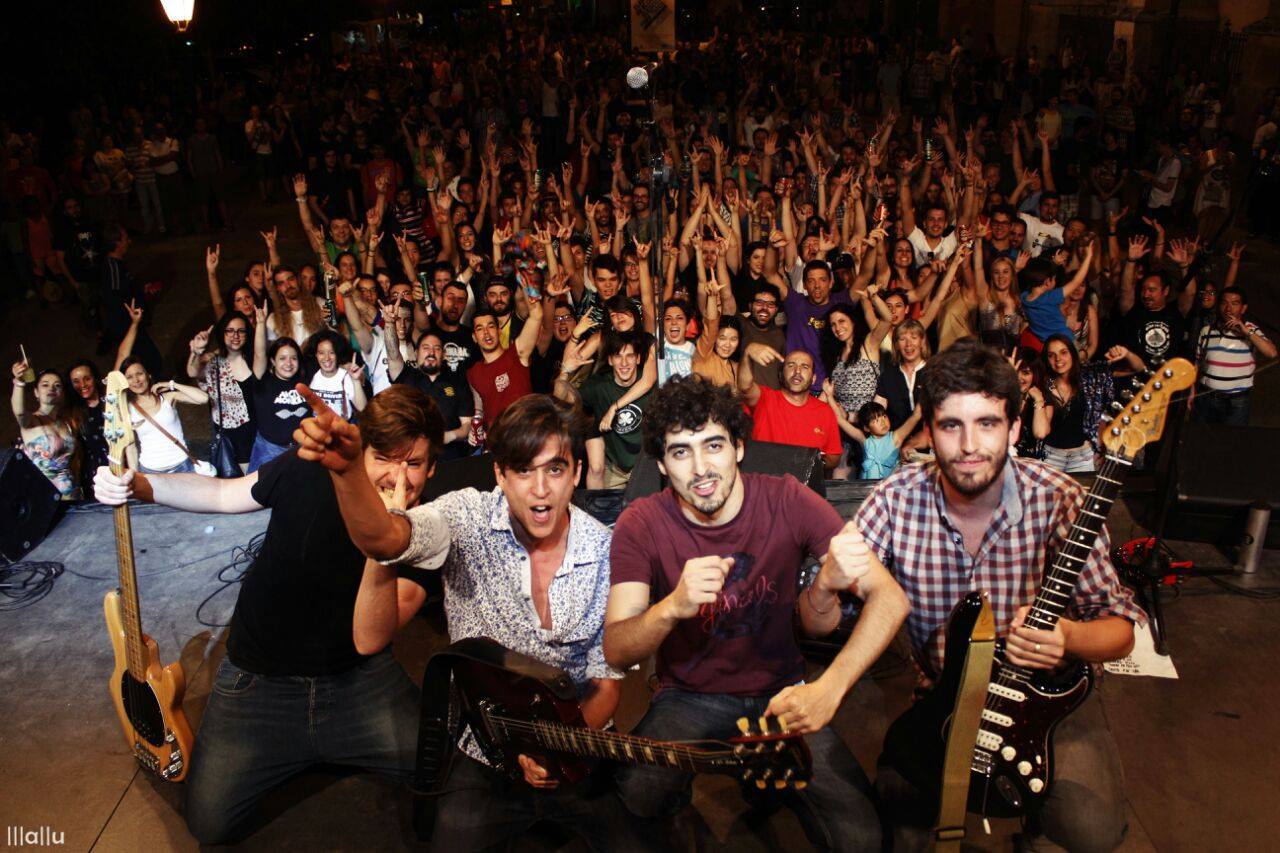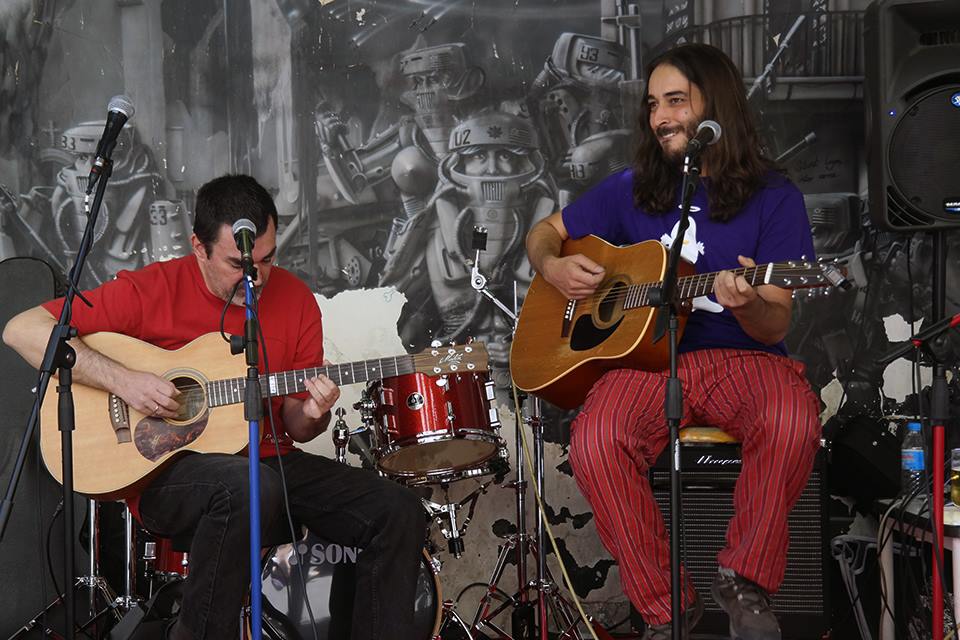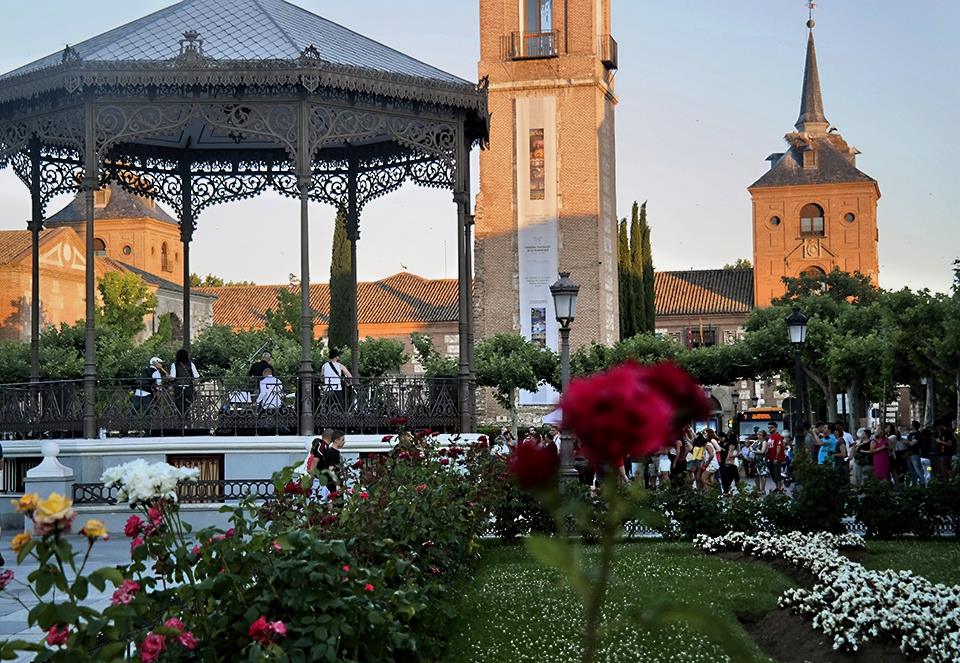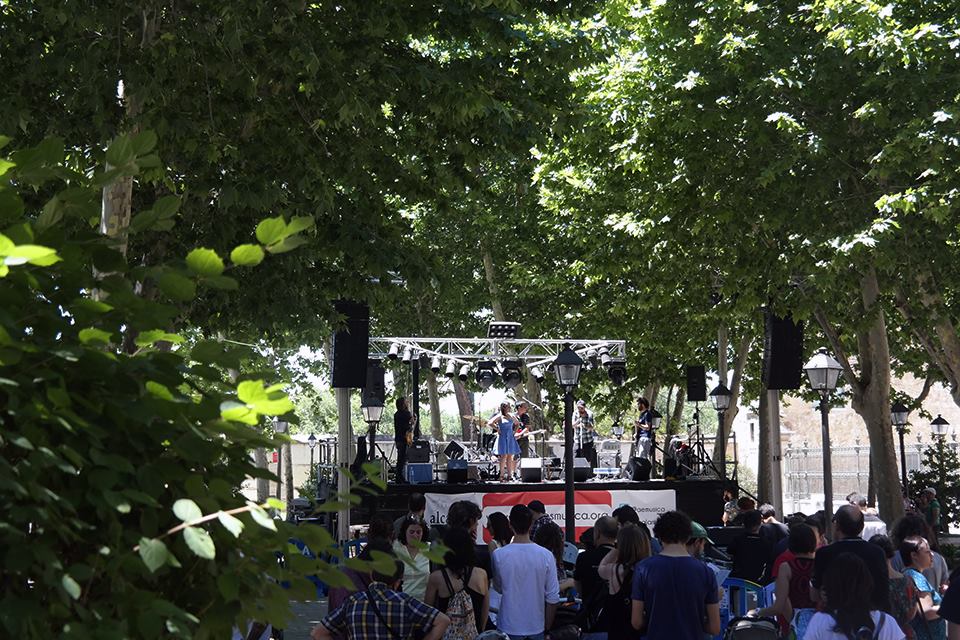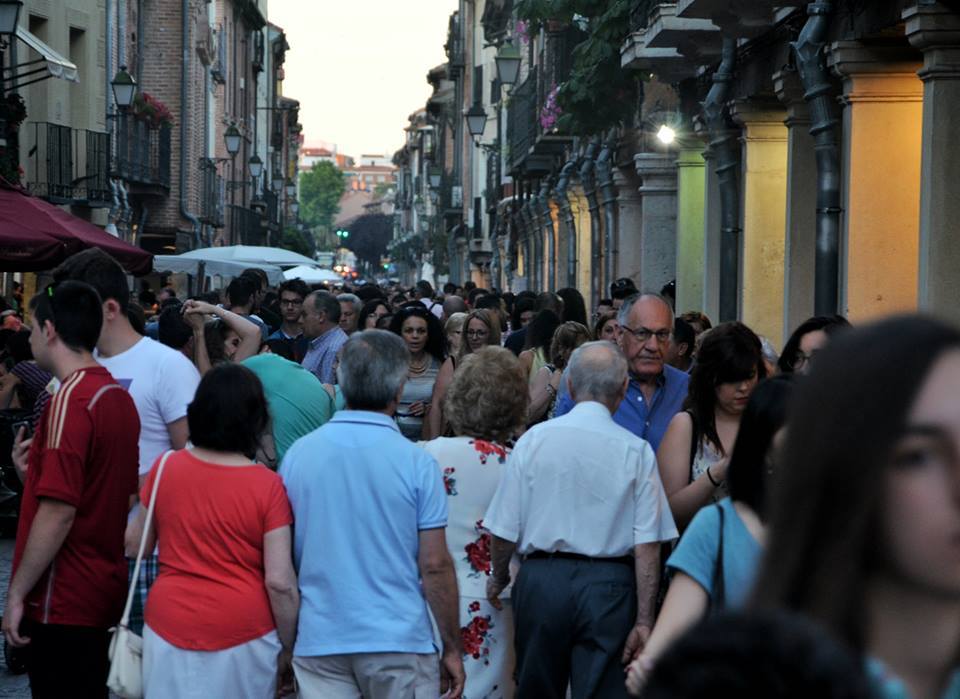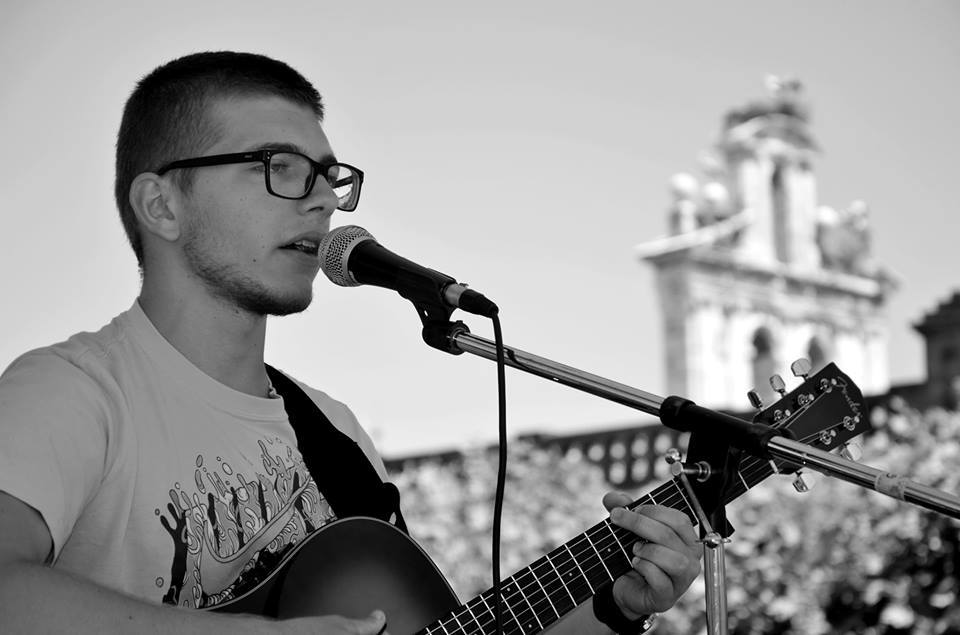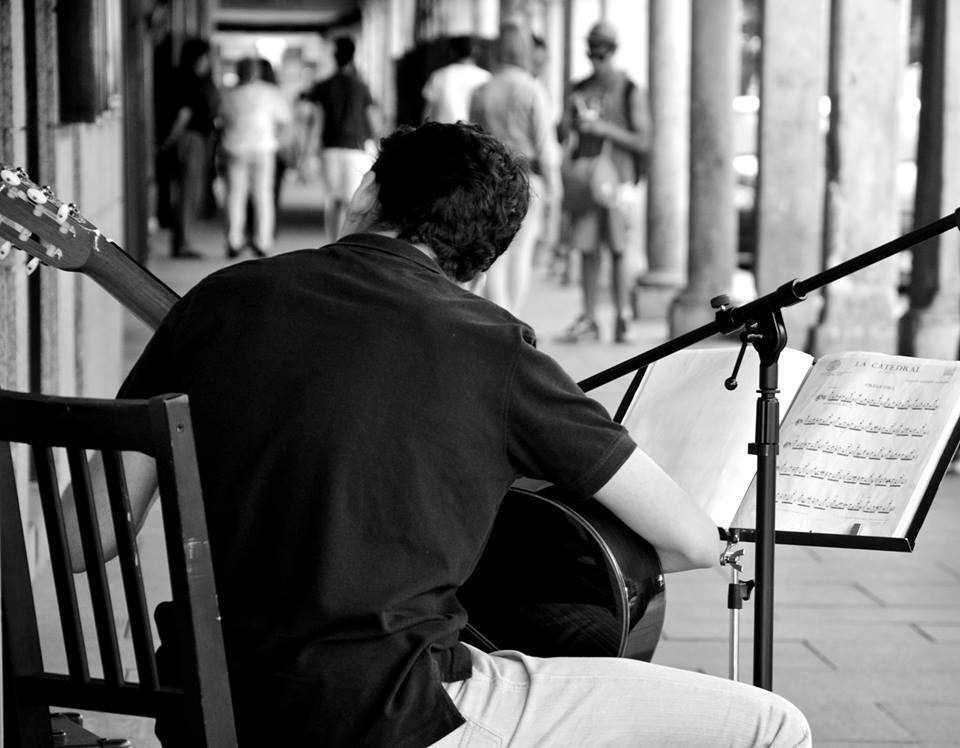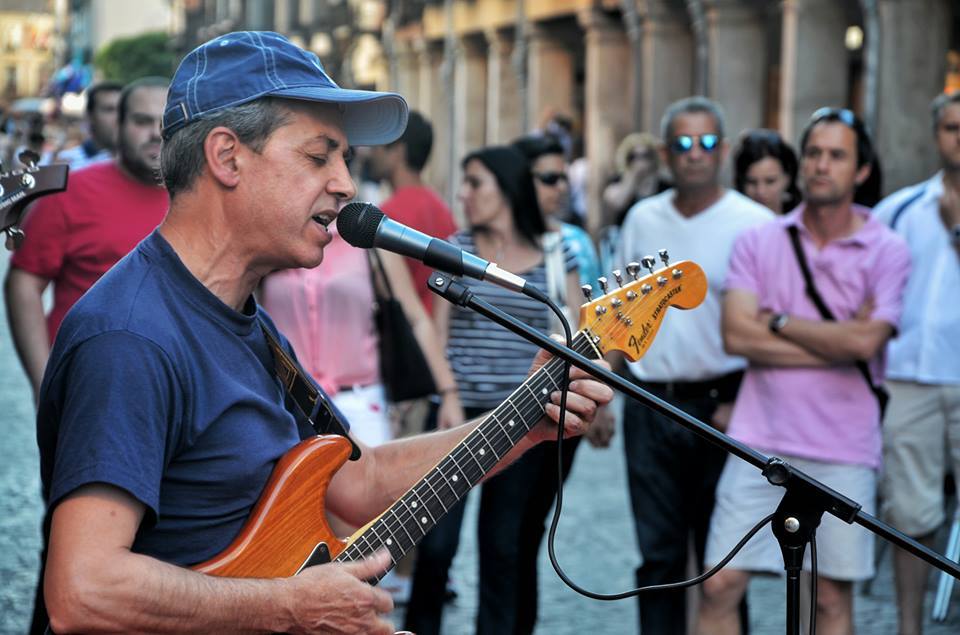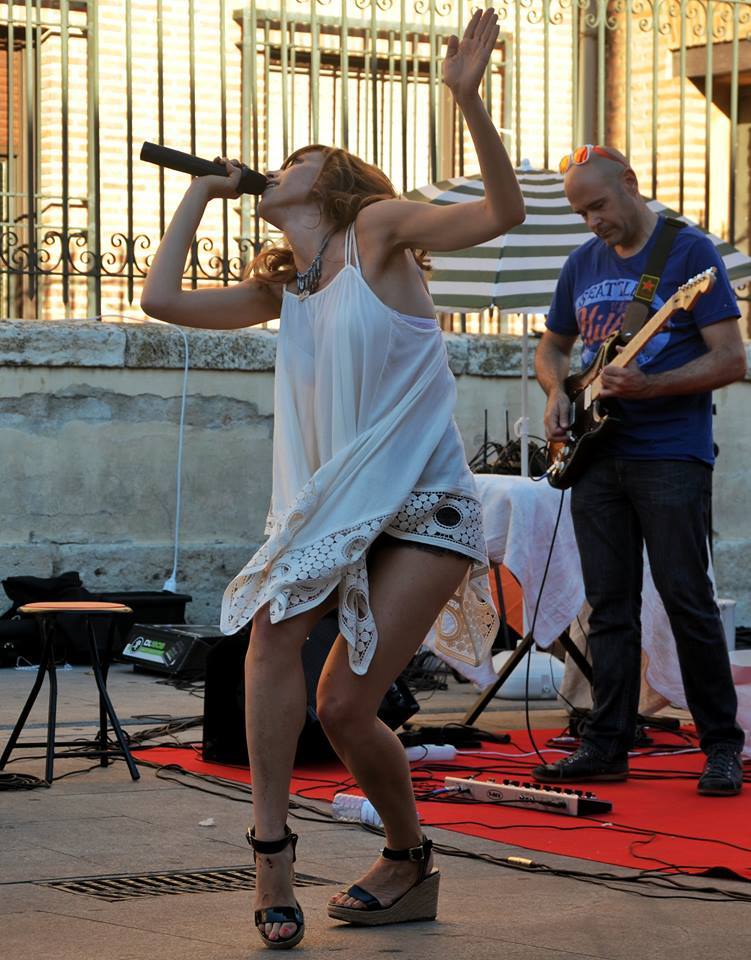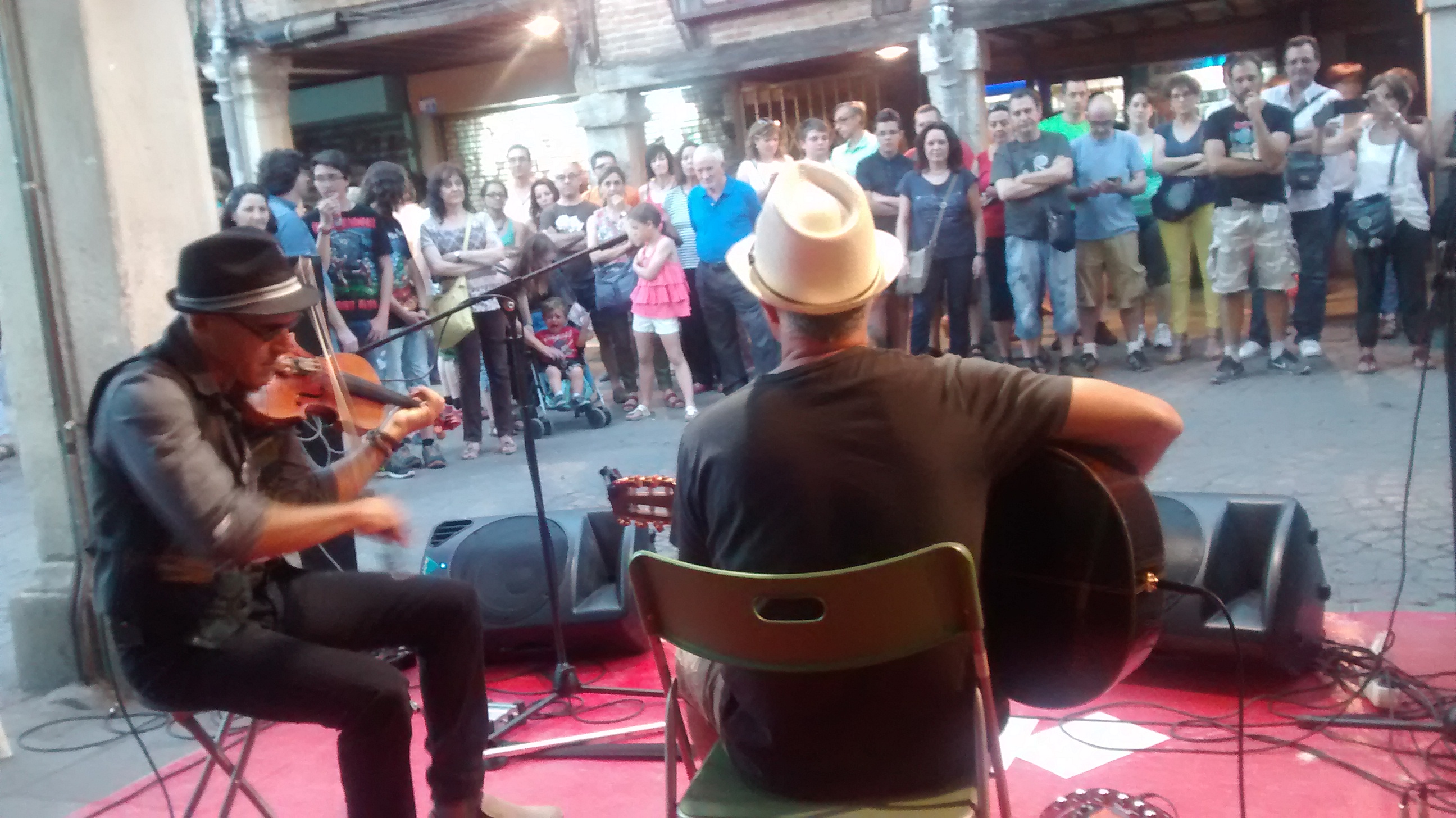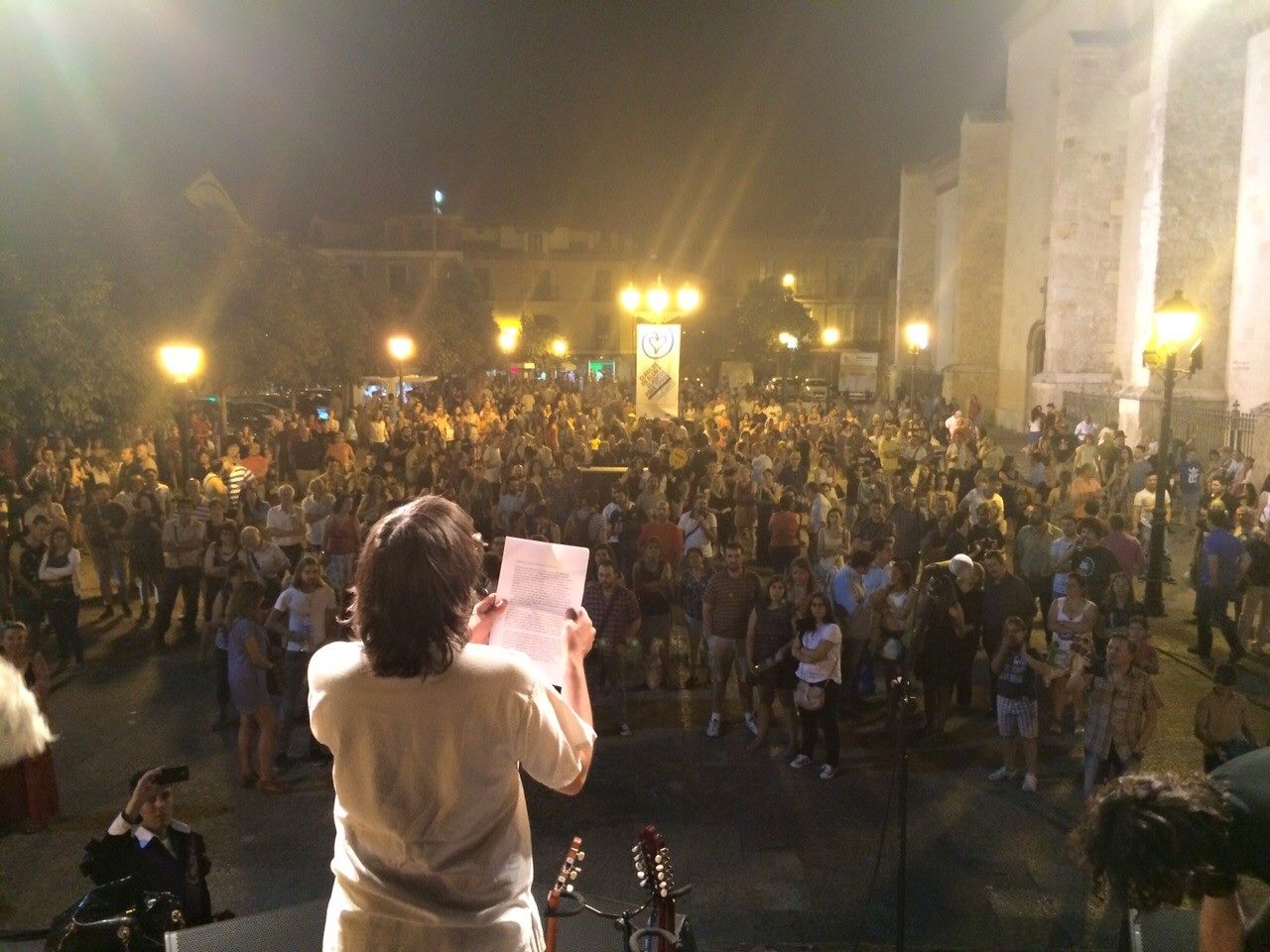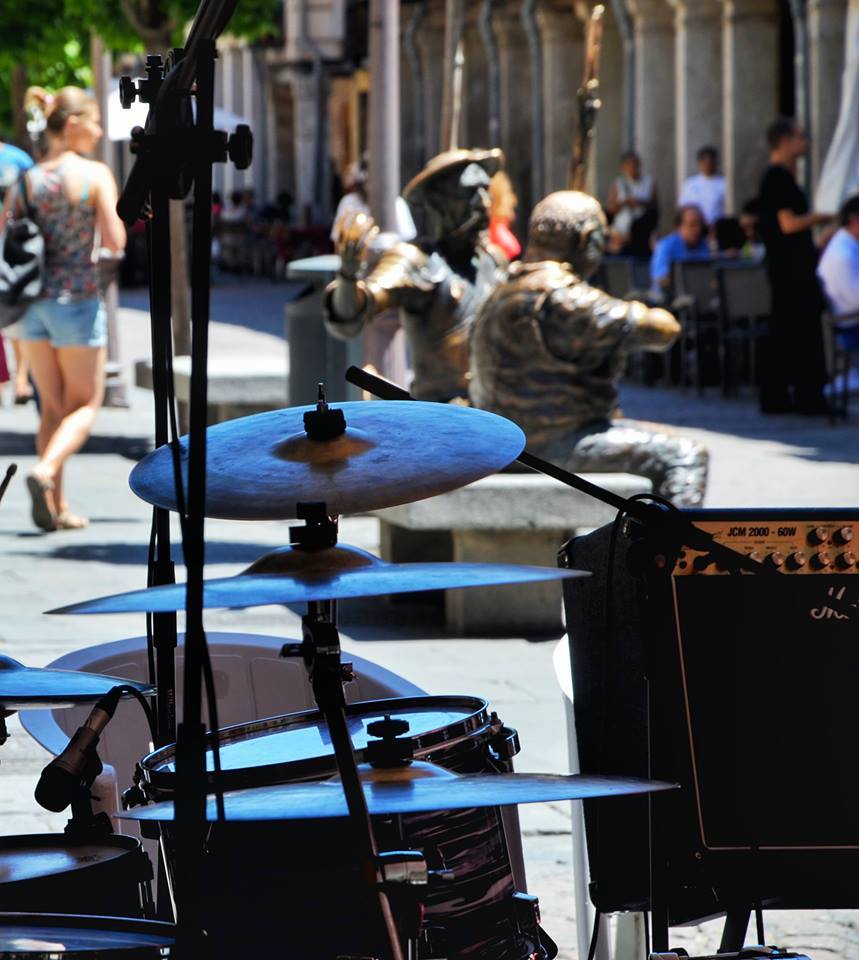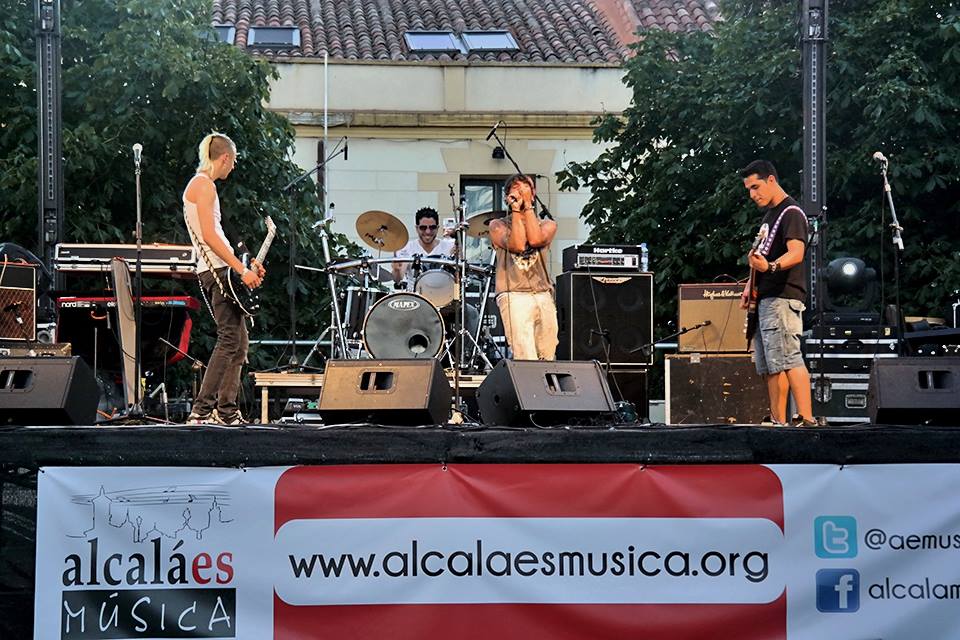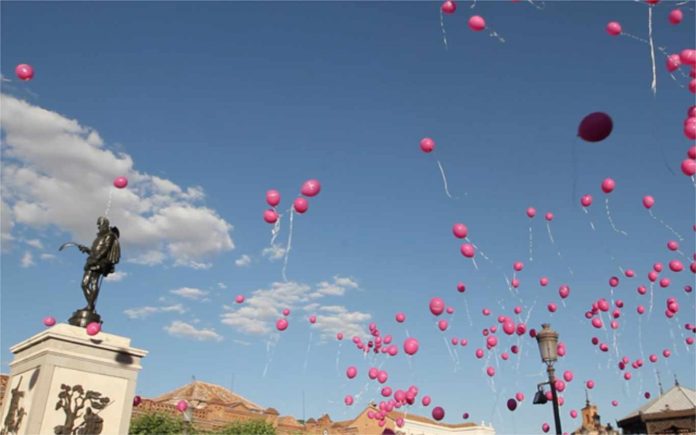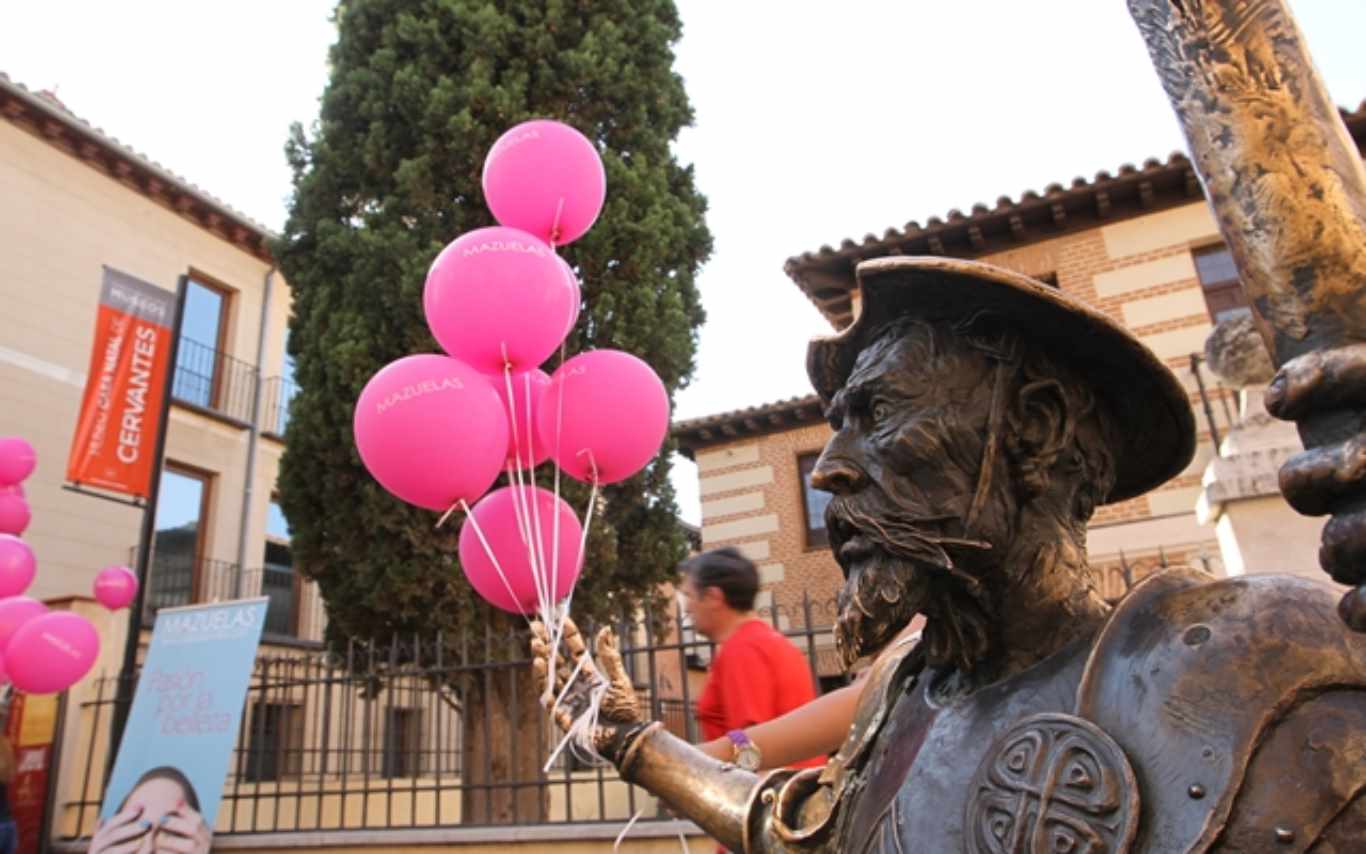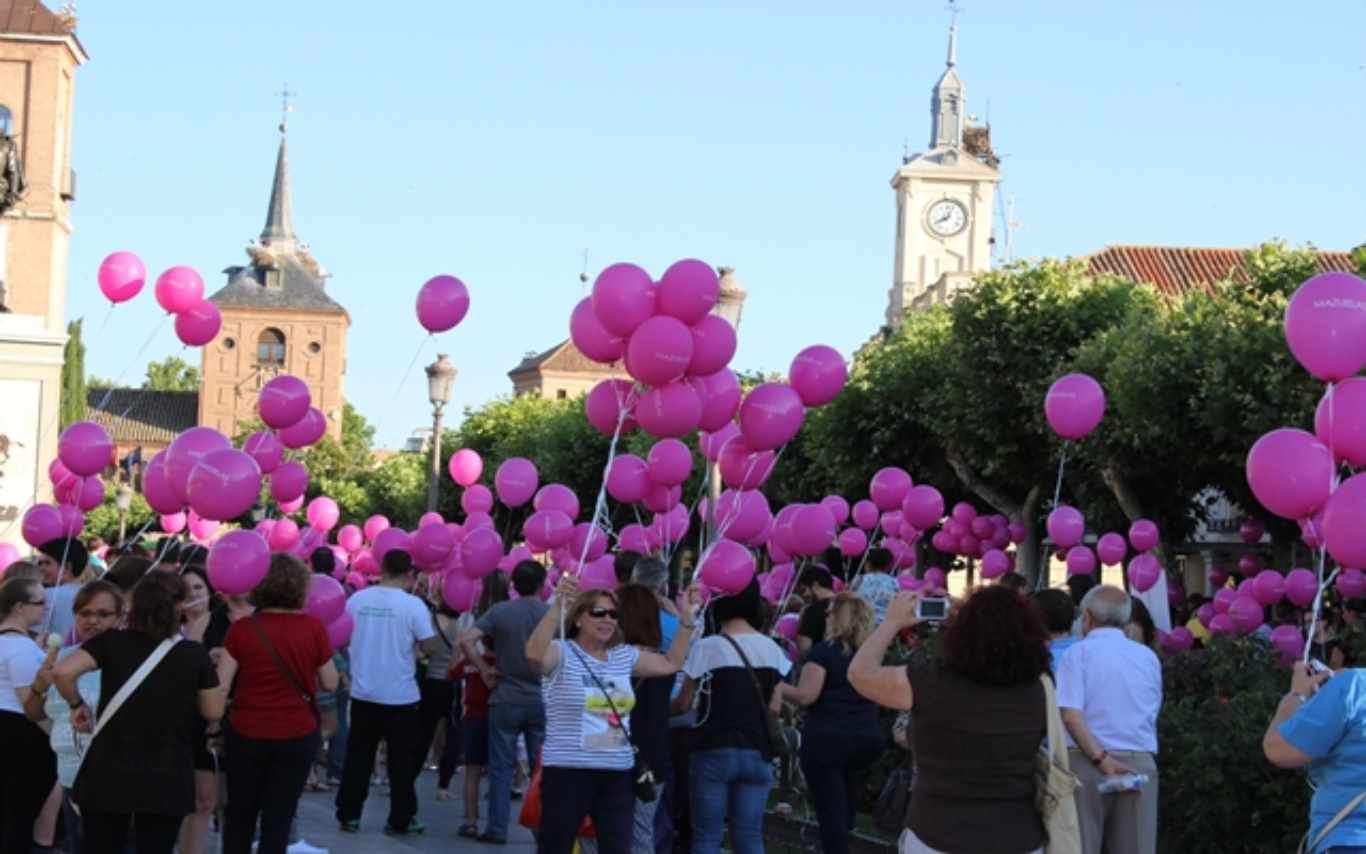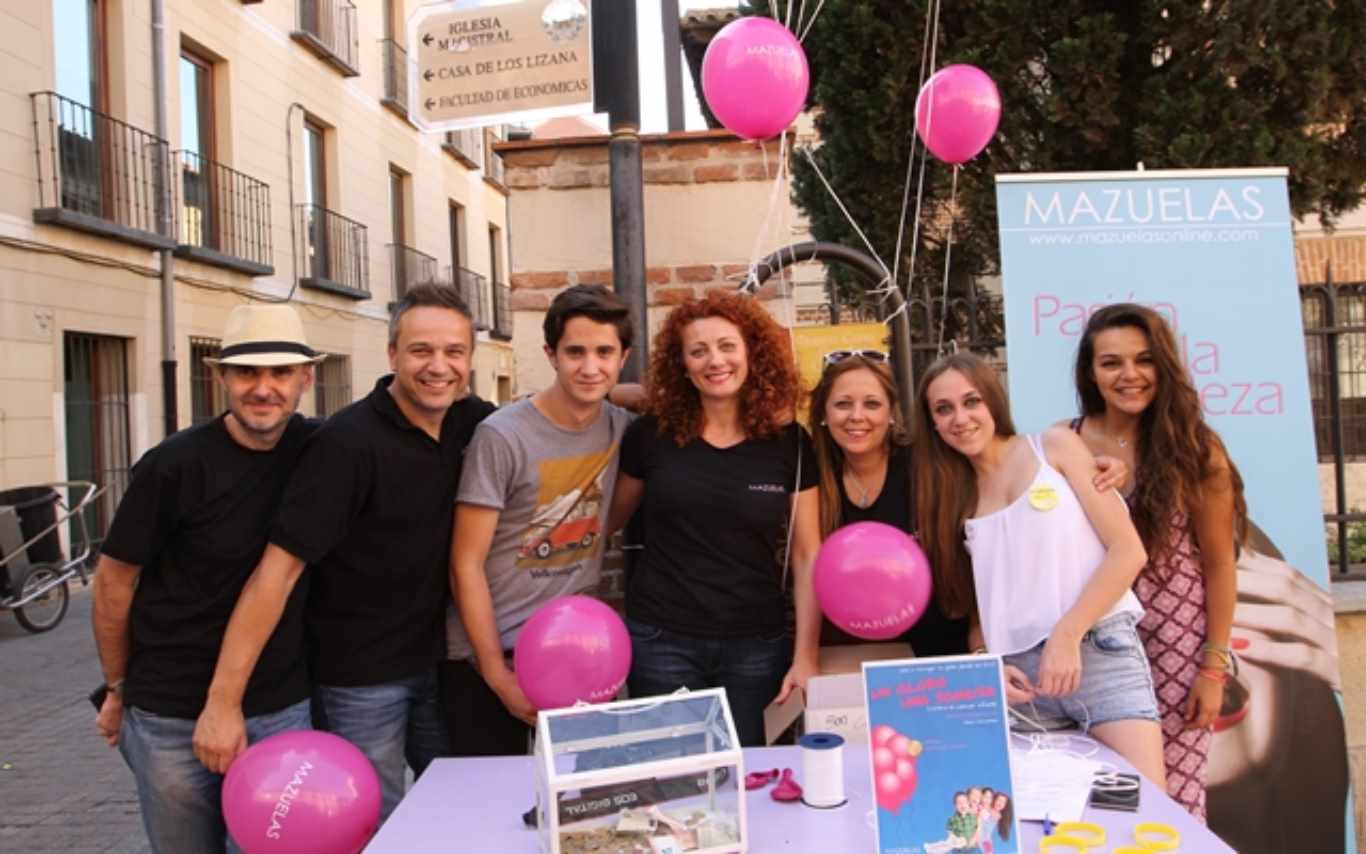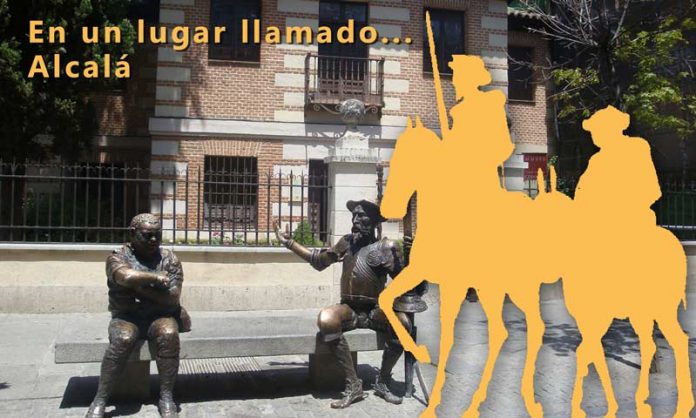Is it possible to visit Alcalá in just a morning? Alcalá has a big number of monuments to be visited, but yes, you can visit Alcalá in a morning and discover all the essential places which make Alcalá so special and international.
With that aim, we recommend you to start your visit from the core of the historical city center, its most emblematic square: plaza de Cervantes. Start your route heading for the central part of the square, meeting point par excellence for Alcalá’s inhabitants—the statue of the noble writer Miguel de Cervantes, author of “Don Quixote”.
Plaza de Cervantes. As starting point of your walking, take a few minutes to contemplate the entire square, looking around you to have a general view. First of all, you will probably fix your attention in the fact that there are two sides of the square with arcades along them and two without them.
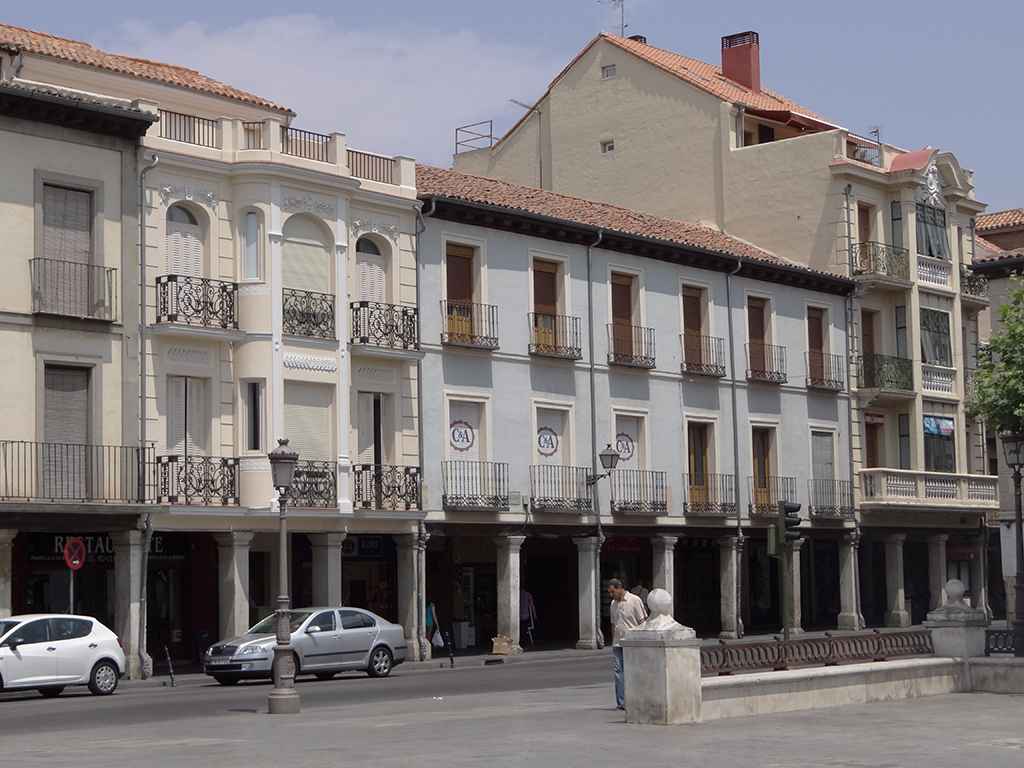
This is due to the distribution of population during the mediaeval period, in which arcades cover the territory where the city was placed, while the opposite sides were the unpopulated fields. Both, the weekly market as well as all important events, were held in there—including bullfights until nineteenth century.
For more information about plaza de Cervantes, click here.
If you look the lonely Santa María’s tower, you will see on your right the City Council, a hospital-convent for monks, called Agonizantes’, from seventeenth century, which was turned into a local doctor’s office during the nineteenth century. The outstanding element is the clock tower, though it was not built until 1944. In front of the City Council, you can admire a bandstand, made by wrought iron in the nineteenth century.
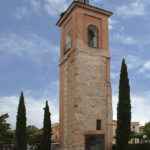
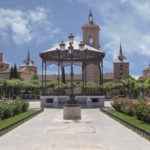
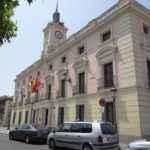
For more information about Santa María’s tower, click here.
Slightly turning to the right, under the arcades, the entry to
Corral de Comedias can be observed. The place holds the oldest theatre of Europe, where you can enjoy wonderful theatre and musical performances.
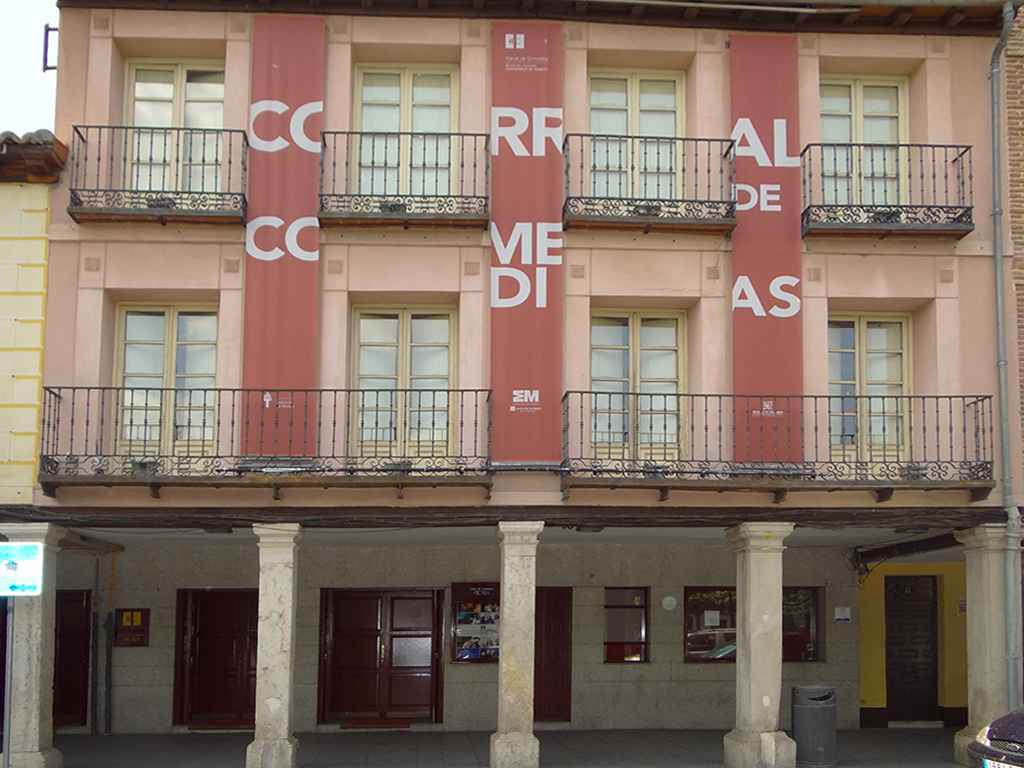
For more information about Corral de Comedias, click here.
In front of Corral de Comedias, on the other side of the square, the flight of steps of Círculo de Contribuyentes might be observed. The building is considered as the head office of Condueños Society, made up by neighbors who with unselfish intention saved the university buildings from sacking and collapse.
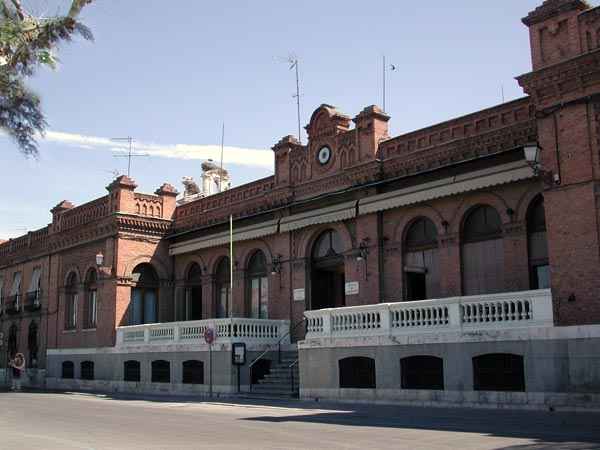
For more information about Círculo de Contribuyentes and Condueños Society, click here.
The University. If you turn your sight to the left and cross the square, you will find yourself headed to the University of Alcalá, whose square is accessible from calle Pedro Gumiel—architect of the institution created by Cardinal Cisneros. In the first place, you will find San Ildefonso Chapel, recently restored and worthy to visit.
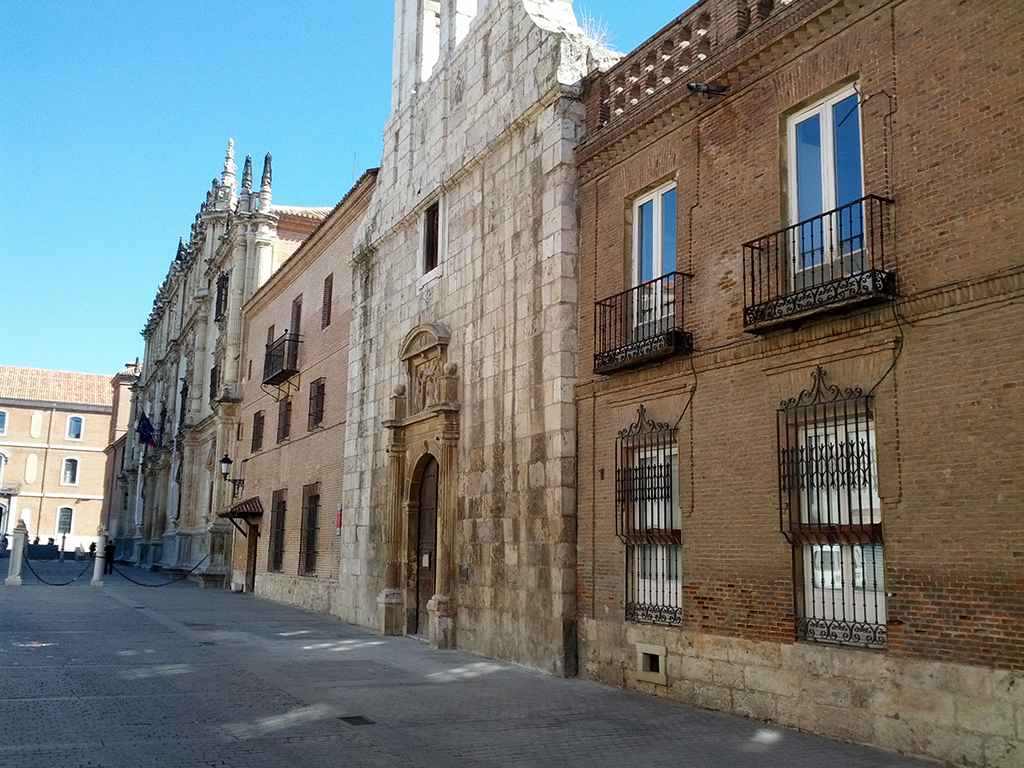
For more information about San Ildefonso Chapel, click here.
When facing the university façade, you may find the better perspective to see it by standing in front of the main entrance, and taking some distance to be able to contemplate it in its whole magnificence. This façade is one of the keys for the proclaiming of Alcalá as World Heritage city in 1998.
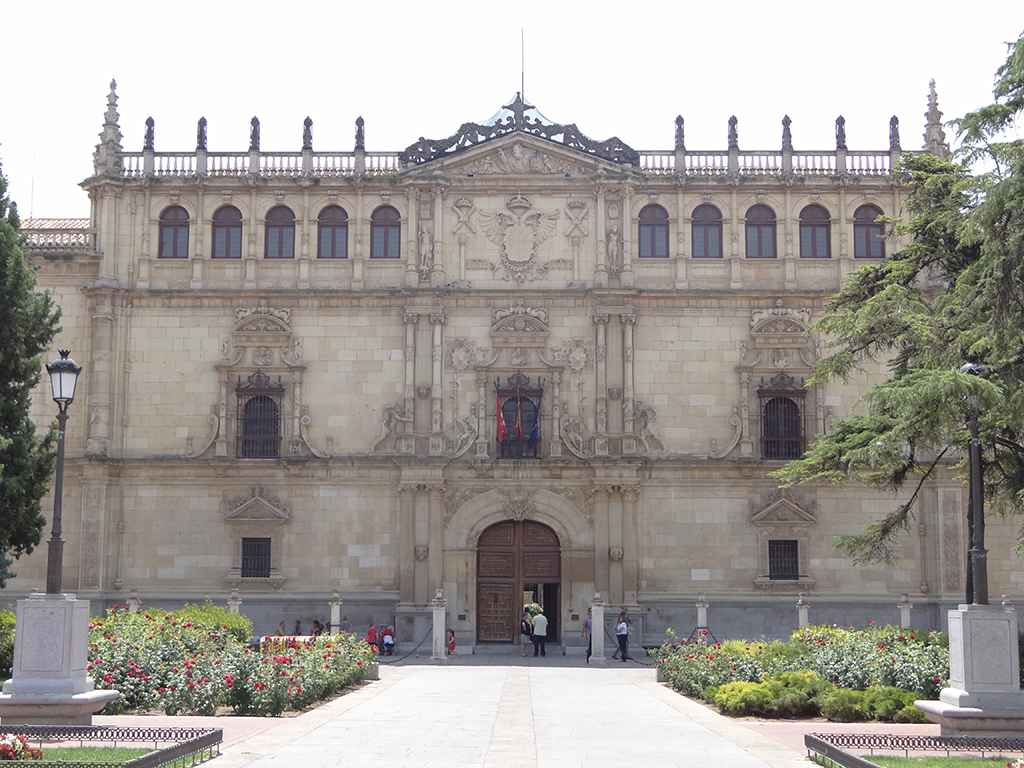 Next, you can follow a little route through its interior, going across its famous three gardens in a row, so different in their ambiences and activities. In the last one, on the right, the Paraninfo’s door is placed, where every 23rd of April, the Cervantes Prize for Literature is awarded.
Next, you can follow a little route through its interior, going across its famous three gardens in a row, so different in their ambiences and activities. In the last one, on the right, the Paraninfo’s door is placed, where every 23rd of April, the Cervantes Prize for Literature is awarded.
Coming back to the second garden, on the left wide and through a quiet and evocative alley, you will come out again to plaza de Cervantes.
For more information about Cisnerian University, click here.
Calle Mayor. At this point, you can cross the square diagonally to the right, heading to calle Mayor, the longest street of Spain and second in Europe with arcades in all its extension—390 meters. During the Middle Ages, it divided Muslim and Jewish quarters of the city.
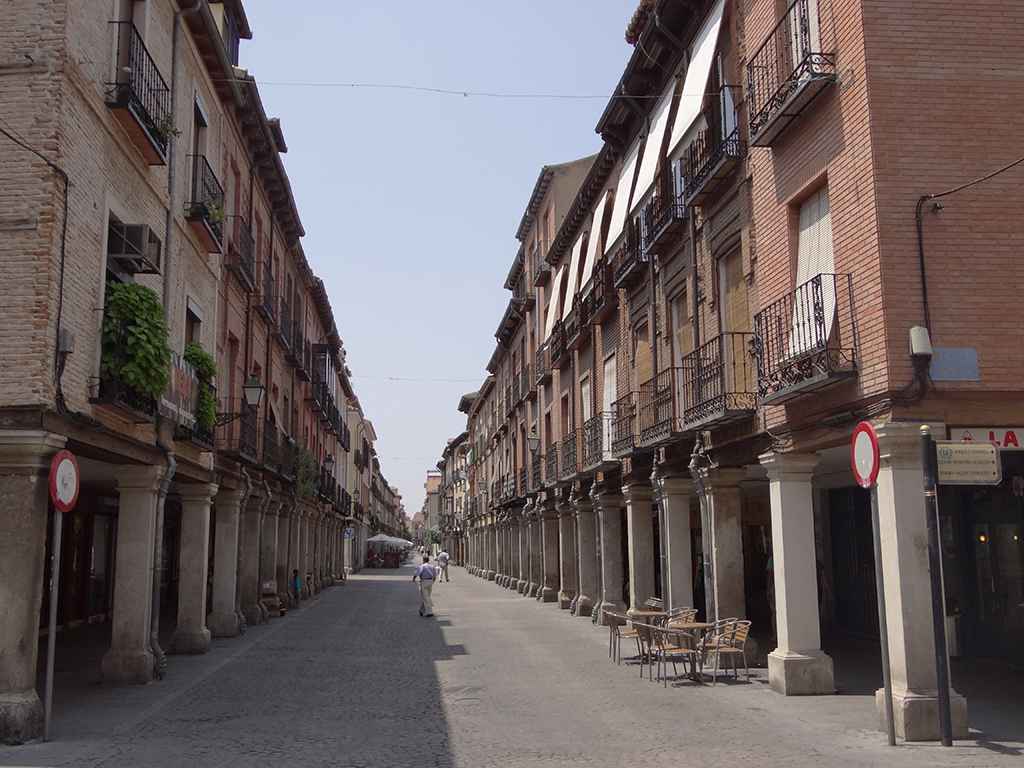 Previously, as you enter calle Mayor, looking to the right, you will see yourself in a yard full of coffees and bars where having a snack. If you want to have a break, you can do it in there as well as in the several catering establishments of the arcades, where you can enjoy some of the typical tapas while drinking a good wine, beer or soft drink.
Previously, as you enter calle Mayor, looking to the right, you will see yourself in a yard full of coffees and bars where having a snack. If you want to have a break, you can do it in there as well as in the several catering establishments of the arcades, where you can enjoy some of the typical tapas while drinking a good wine, beer or soft drink.
For more information about calle Mayor, click here.
Teatro Salón Cervantes. On the right sidewalk, calle Cervantes is placed. There, you can enter and contemplate—at the end of the road on the right side—the modern façade of Teatro Salón Cervantes, and its programming showed on ticket offices and windows.
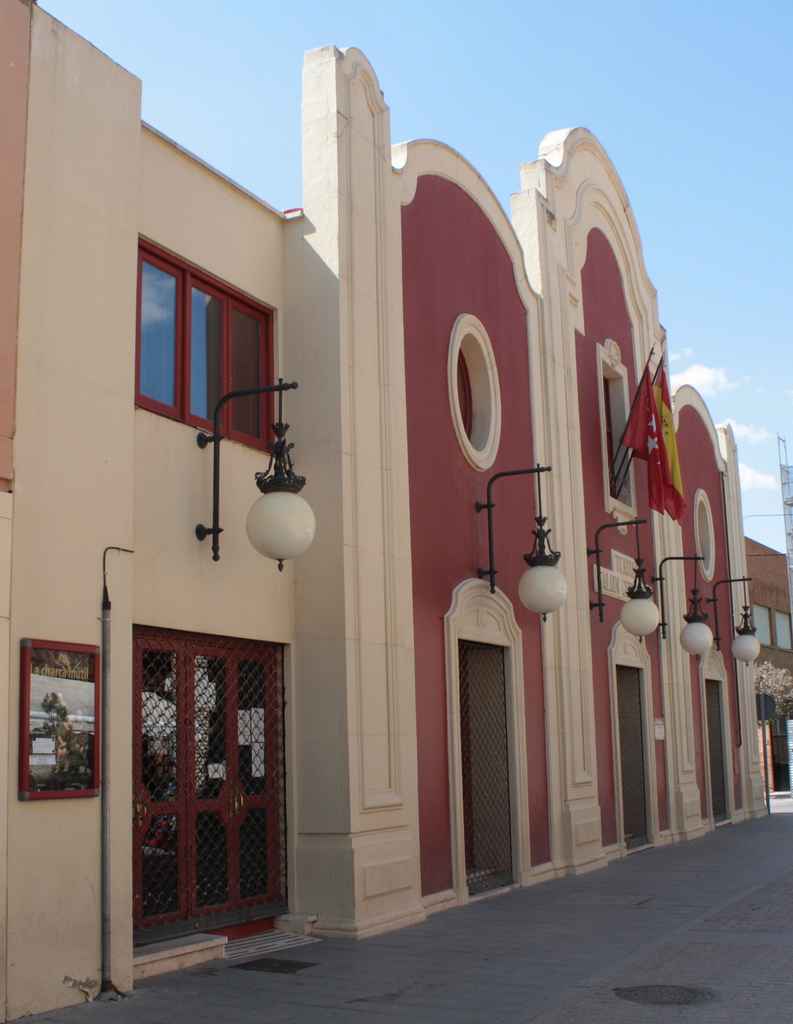
For more information about Teatro Salón Cervantes, click here.
Coming back to calle Mayor, around the middle of the street, you will find Hospitalillo—the traditional name of what today is known as Antezana’s Hospital —, whose backyard is full of mediaeval reminiscence. Just next to it, another crucial architectural contribution for Alcalá’s fame is situated: the birthplace of Miguel de Cervantes, a museum able to be visited, as well as an interesting place for discovering in depth the professional and domestic life of the writer in such period along its visit.
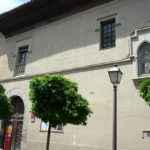
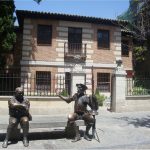
As you exit—or enter!—the house of the most notable Spanish writer, you can rest for a moment with Don Quixote and Sancho Panza, or more appropriately said, with their sculptures, on the stone bench in front of the house.
For more information about Antezana’s Hospital, click here.
For more information about Cervantes Birthplace Museum, click here.
Corral de la Sinagoga. In front of Cervantes Birthplace, there is an entrance to Corral de la Sinagoga, a narrow alley leading the place where, in the Middle Ages, one of the two synagogues of the city, the Great one, was placed. From the square, a modern-grilled door gives access to the current plaza de los Irlandeses, where the school of the same name is located. However, we will take up such place later on during our visit.
Going around the interior of that small square, by the right side, you will come back again to calle Mayor, and if, in the meanwhile, you take a look to the ceiling, you will find from time to time a surprise over some of the doors. Little loopholes or small windows can be observed, used in the old times by the occupants of the upper house to check who was knocking their door and if he was or was not a friend.
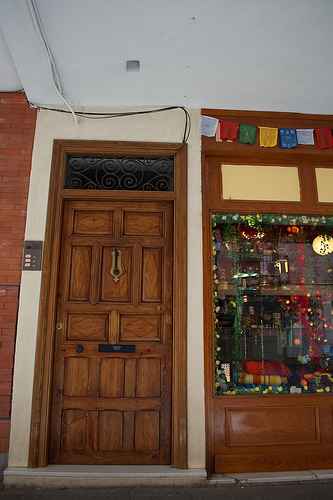
At the end of calle Mayor, you will see Casa Tapón. Its name could seem to be obvious, as it blocks calle Mayor way out forcing you to turn left and to arrive to plaza de los Santos Niños, Catholic patrons of Alcalá. In that square, a little monument dedicated to Christopher Columbus can be seen, but the outstanding monument is the Magisterial Cathedral, church which obtained such title when Alcalá was renamed as bishopric, in 1991, after a thousand years. In its inside, numerous historical treasures can be admired. It is also vividly recommended to go up its stone stairs to the top of the tower, where the whole city can be seen in a bird’s eye-view: a priceless vision.
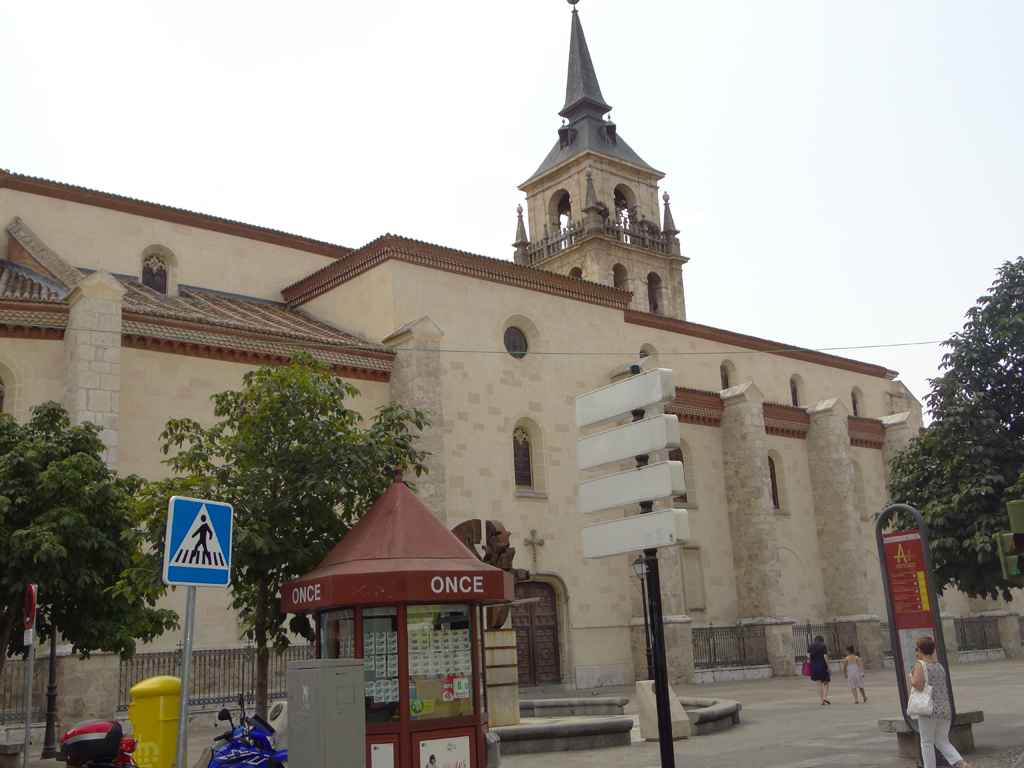
For more information about Magisterial Cathedral, click here.
Walking again under the arcades, take the way to calle Escritorios, parallel on the left to calle Mayor. Passing by through the arcades, on the right, you will go through Agustinas Convent, while on the left, you will see the façade of the old Irlandeses School. Continuing by the same street—which changes its name to Santa Úrsula’s— Carmelitas Descalzas School is located on the left, today faculty of Architecture, and arriving to plaza de Cervantes, on the right side, there is Santa Úrsula Convent. In front of the convent, on the corner of the square, Manchegos School can be found.
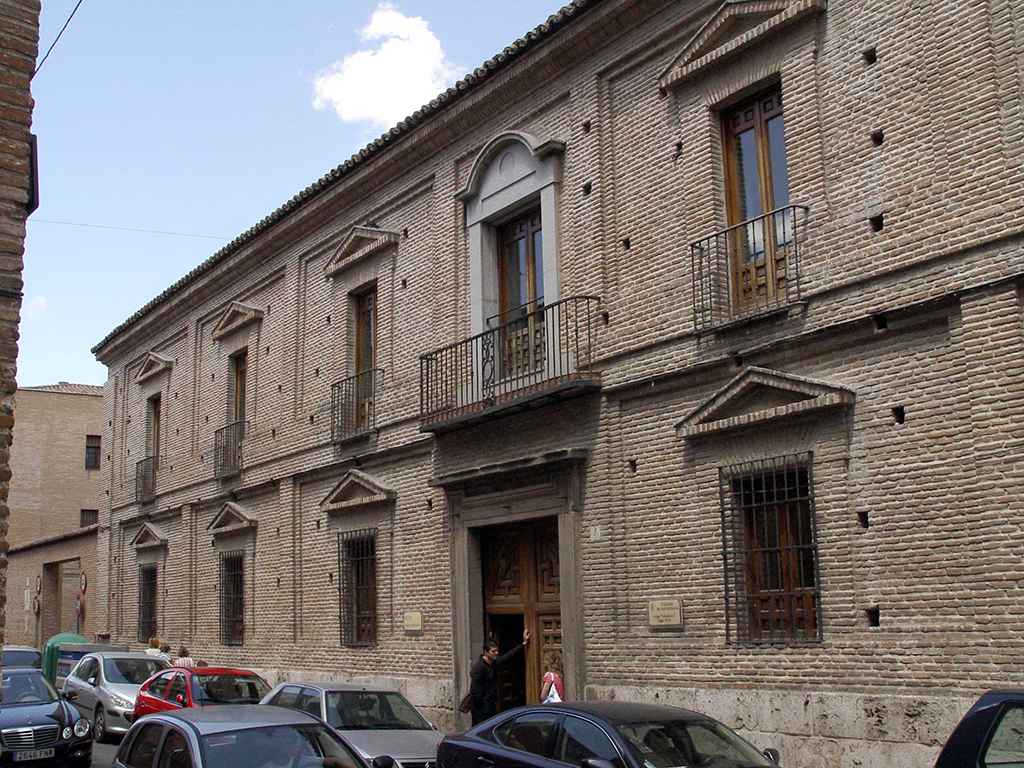
For more information about Irlandeses School, click here.
Oidor Chapel and its tower. To finish the visit with an unforgettable experience, you can enjoy the visit to Oidor Chapel, where the font in which Miguel de Cervantes was baptized is preserved. Finally, do not miss to go up another magnificent tower, Santa María’s, where you will enjoy another time Alcalá in its whole extension from a new aerial perspective, in this case, a view of the eastern region of the historical city center and the university.
We hope you enjoyed the visit.
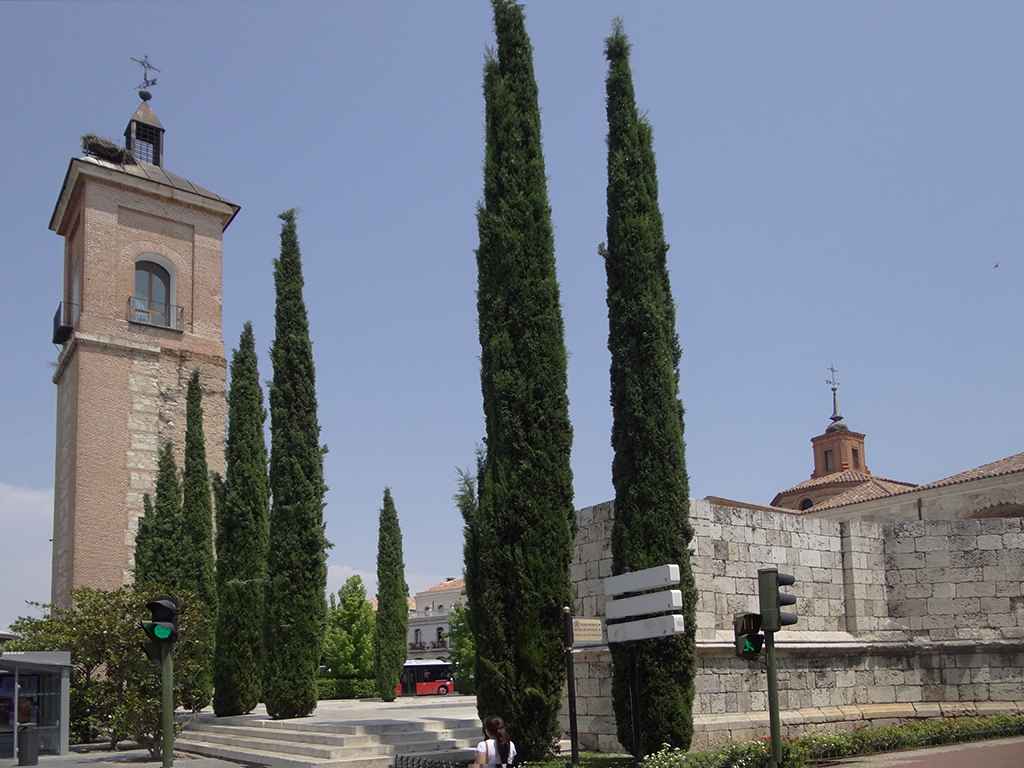
For more information about Oidor Chapel, click here.
For more information about Santa María’s tower, click here.
Continue reading:


